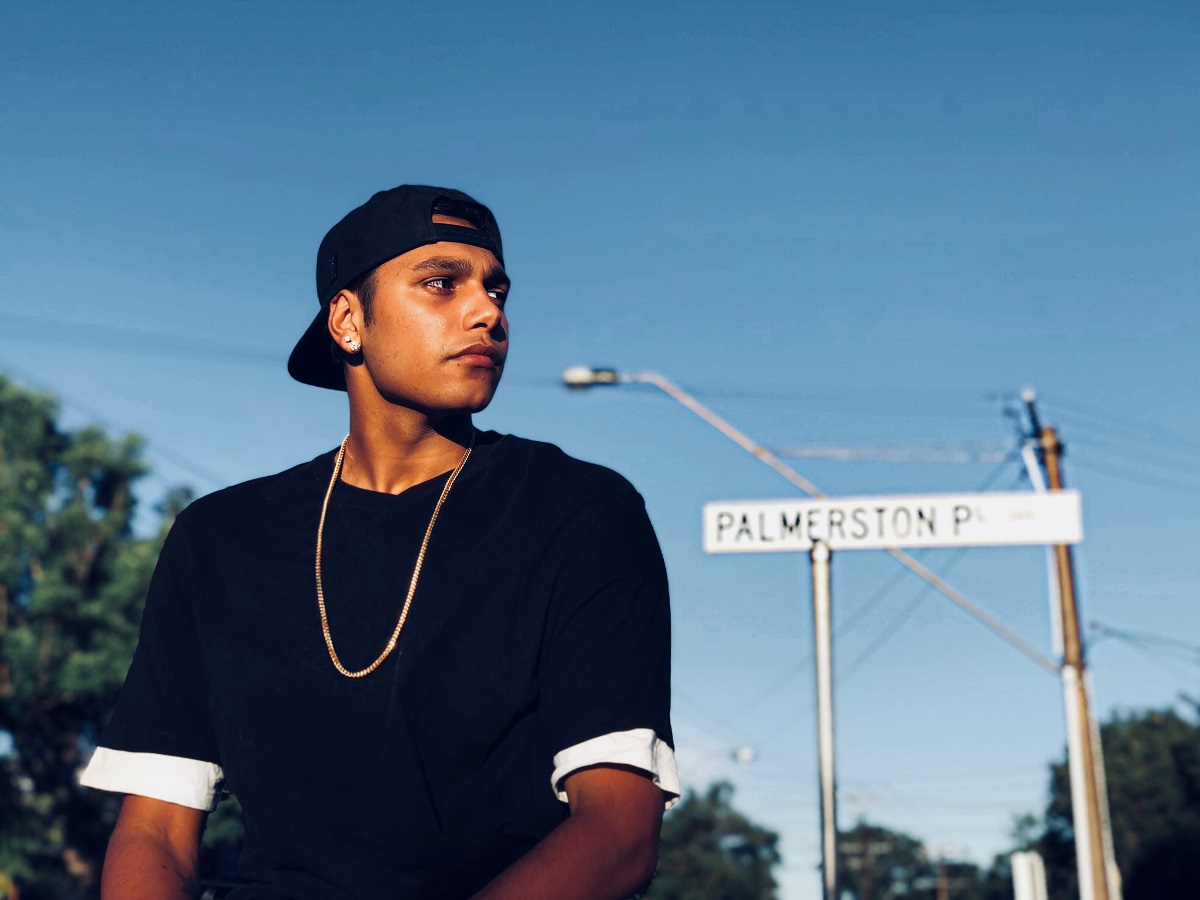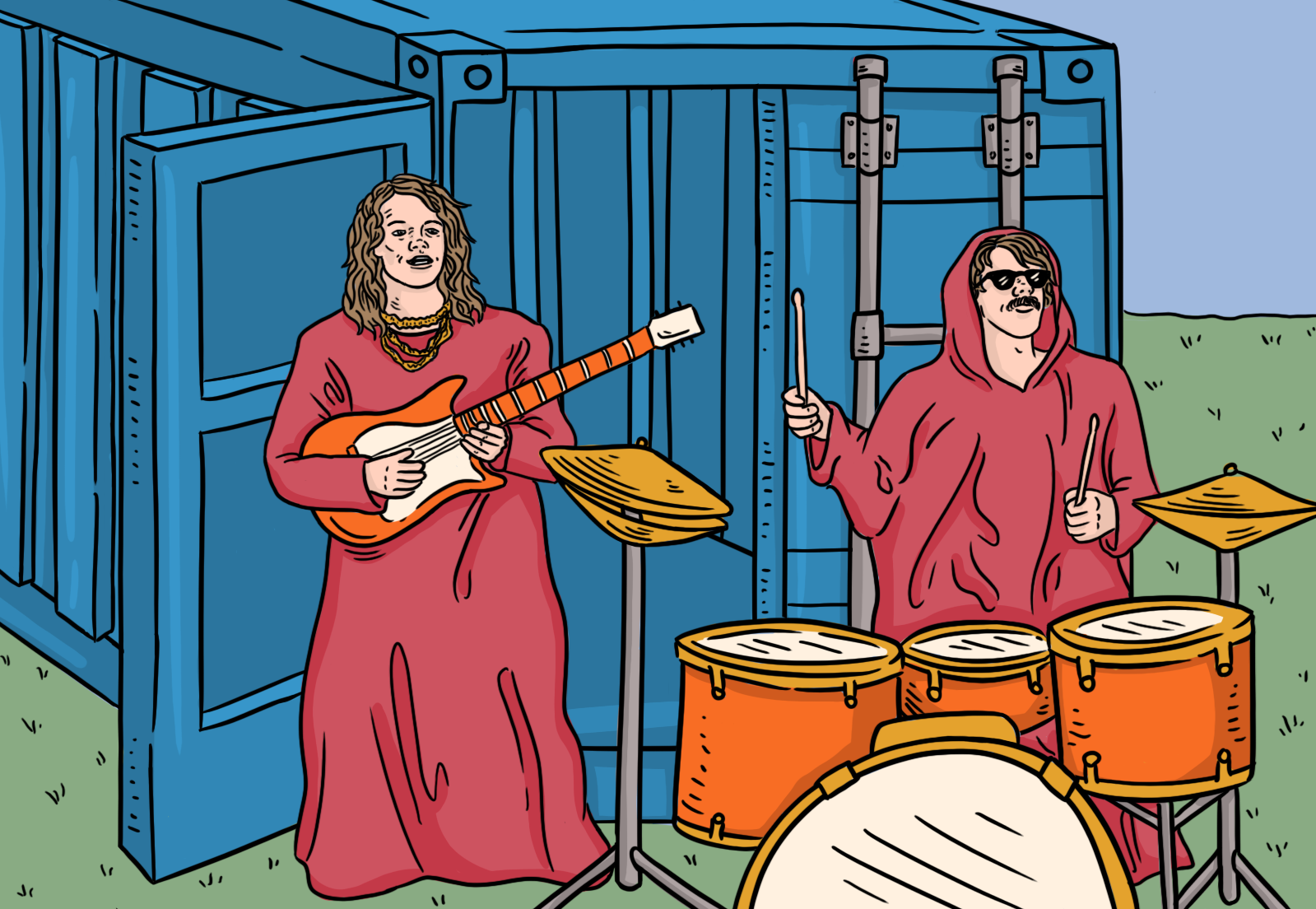Jacob Nichaloff, AKA J-Milla, is a rising hip hop star with a profound message. His highly anticipated debut EP Straight Up is a raw, honest reflection of Milla’s experiences of racism growing up in Australia and being of mixed Indigenous heritage.
The EP’s lead single ‘My People’, is Milla taking to music to raise awareness of the struggles Indigenous people still experience. It’s an important issue, especially given the discussion around changing the date of Australia Day, and his voice, like many others, is being heard. “It’s not just me,” Milla says. “There’s a few other people on the other end doing the same job and I can’t wait to see where it all leads.”
It’s not that the general population is ignorant of the long struggles experienced by Aboriginal and Torres Strait Islander peoples, but seeing those struggles channelled through the medium of music is amazing. J-Milla’s EP is no exception. Straight Up is just that, straight up and to the point on racism. This is J-Milla’s voice. “The words are straight up,” he says, “‘Straight Up’ is just keeping it real.”
The EP has a lot of socio-political themes coursing through it, but where it hits the hardest is definitely its stance on racism. “It’s true. ‘My People’, I was working on that song for quite a while. I had the lyrics down pat, but I was looking for a certain beat, a certain instrumental.
“I wanted a laid-back beat. I started tweaking around with my lyrics and was happy with it all. To be honest, the song, it’s based on my people and racism, and I am talking about Australia but I’m talking about racism around the world, I’m trying to get that message across.
“We know that racism is happening today, everyday, the most important thing is to get my point across – I said it in my rap, ‘Reconciliation is the medicine that will heal.’”
It’s difficult to know where to begin with J-Milla’s strong address, but there are questions about his heritage. “I’m from Northern Territory,” he says. “The countryside of that is throughout Lichfield – I don’t know much about my history, only what my father and aunties tell me, it’s a beautiful place. I’m of the Marranunggu people, I’m still trying to find out more information about it myself as I left home at a young age. I wasn’t told much about my people as a kid, but I want to learn.”
Through his lyrics and music, when Milla talks about divisions and how they must be healed, he’s speaking from a point where, though he’s not as connected to his history as he’d like, he’s speaking of his struggles from a point where people have taken him at face value, looking at the colour of his skin and making assumptions.
“It’s not 100% like that but that’s the way I feel – I’m talking from the heart. There have been a few situations in the past where things I’ve sung about, they’ve happened, and again, just getting that message across hopefully it does stop, because I’m not the only one experiencing that. My people and a lot of Aboriginal Australians as well, they’re feeling that.
“That’s why at the start of the song, I don’t have much to talk about, but I do say, ‘People forget that I’m half white, but now I’m speaking out for my black side.’ I’m speaking out for my people, I want them to know they’re not alone, this needs to come to an end. I don’t know how to go about it, but reconciliation I guess”
Clear and concise, before we can truly address all the issues polluting our society, perhaps we should look to what’s going on at home, at the absolute foundations – the still existing division between white and Aboriginal Australians. “We do need to jump in each other’s shoes,” says Milla. “It’s easy to say things, but it’s not that easy to live the other person’s life.
“There are so many Indigenous communities and there’s so many beautiful places for people to visit, I feel if we have a whole bunch of people who go out to those communities and experience how those communities are living, it’ll create a stronger connection, make people feel more comfortable.
“As a rapper, I want to show racism is still happening today – and it needs to come to an end.”

